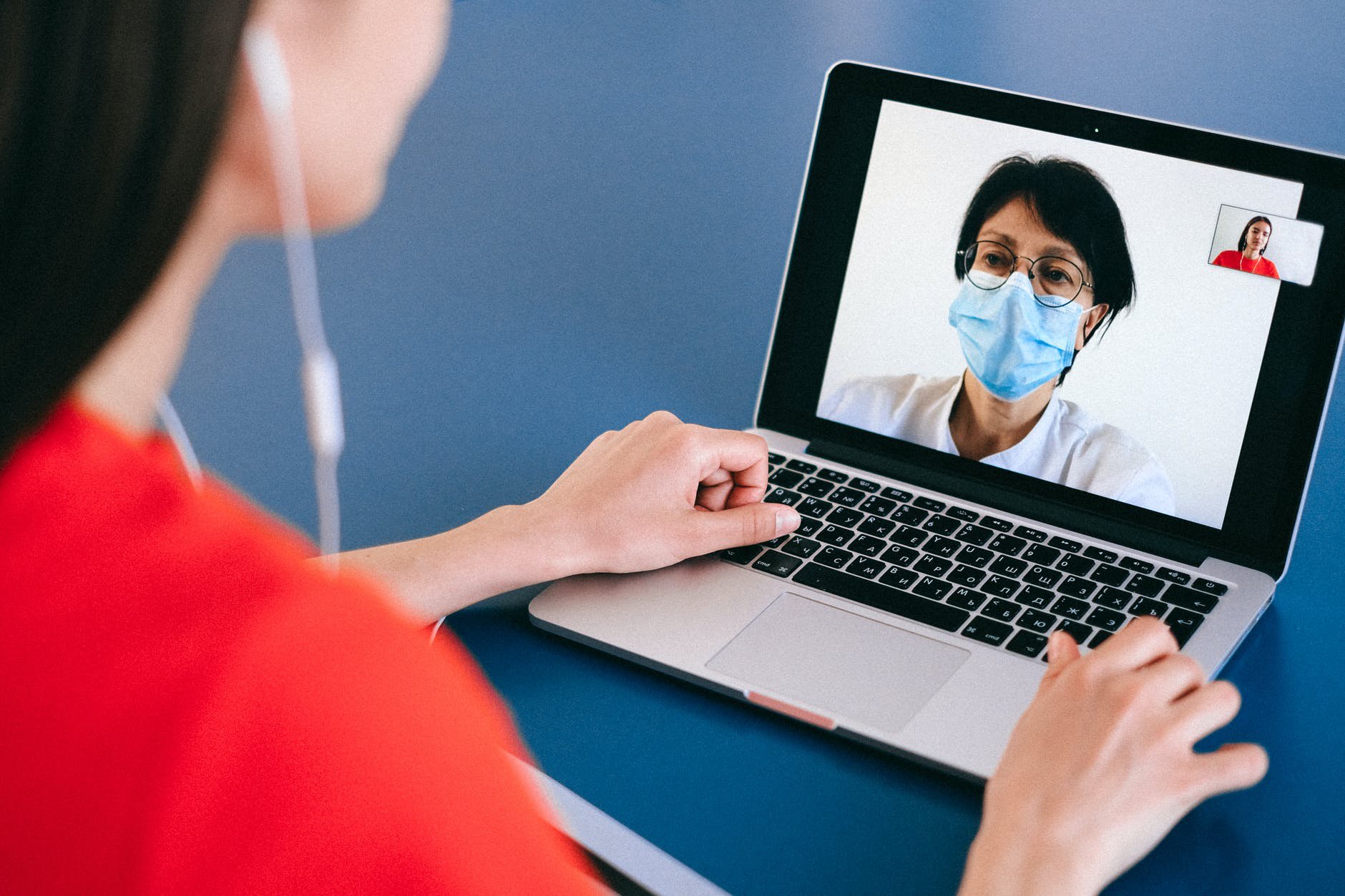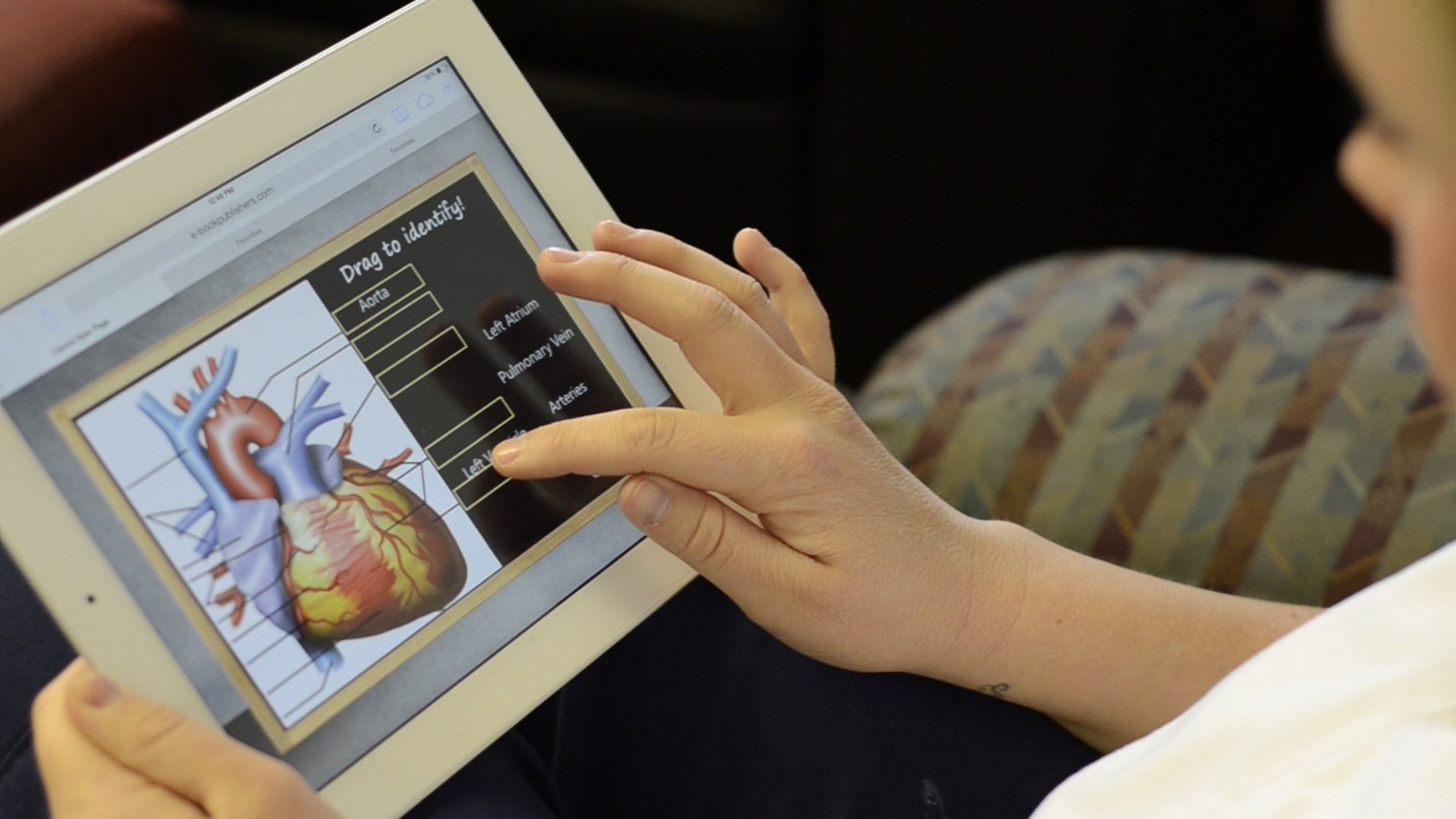Work-From-Home Nursing Jobs: What Are the Best & Highest Paying Options for Remote RNs?

The COVID-19 outbreak that is shaking the world to its core is putting enormous pressure on the healthcare workforce. As a result, nurses have to work longer shifts in increasingly understaffed hospitals, and their emotional wellbeing is daily put to the test due to the overall anxiety and suffering that they encounter. All these factors are bound to overwhelm and stress out nurses to the point in which they experience burnout.
If you find yourself in a similar position – if the long hours, the understaffing, the constant stress that comes with being an RN in the time of a pandemic have taken their toll – you could opt for a career change and find a nursing job that allows for better work-life balance, is less stressful, more flexible, and on top of everything else, gives you the possibility to work from home.
Lucky for you, there are plenty of career opportunities that will tick all the boxes from the above. With these at-home jobs, you’ll never sacrifice the fulfillment that nursing brings. Win-win. Find out what nursing careers can be done remotely and how to ensure you qualify for them.
Nursing Careers That Can Be Done Remotely

Do you want to take a break from the constant anxiety of the ER or do you want to reinvent your career entirely? These jobs might be exactly what you were looking for.
Telehealth Nurse
The concept of telehealth nursing is rather straightforward: patients who aren’t feeling well want a professional opinion prior to going to a hospital, so nurses are there to answer their health-related questions over the phone and help guide them further.
Telehealth nurses have a broad range of responsibilities: sometimes they might help worried new parents who call because their child is displaying sickness symptoms, other times they assist with ambulance dispatch in life-threatening situations. Telehealth nurses can also guide patients to the Emergency Department, clarify appropriate treatment options, educate callers about self-help at home, and assist with appointment scheduling. What makes telehealth nurses particularly important to the healthcare ecosystem is the fact that they can be reached over the phone during almost any time interval (around the clock and even during weekends). Also, this job brings a unique opportunity to assist with patient retention and decrease on-call hours for healthcare providers.
In order to be a telehealth nurse there is a specific set of skills you must master. Critical thinking will allow you to sort objectively through a rampant quantity of information. Knowing when to ask for additional information about bruises, rashes or any other symptoms the caller might be worried about will lead to better, faster decision making and improved suggestions on your side.
Being a good listener and a visual thinker is also helpful. This way nurses will be able to paint a mental picture based on the caller’s concerns and will be able to provide better care.
Undoubtedly, listening and communication skills are essential since the very premise of the job relies on talking to patients over the phone and making prompt decisions. In-depth clinical knowledge, refined technical skills, and the ability to navigate computer-generated guidelines are paramount for telehealth nurses in order to be able to reach a final clinical decision and prioritize care.
Telehealth nursing is a job that doesn’t require the nurses’ physical presence on the clinical site, so it can be easily done from a home environment. It also allows for more flexibility in work hours and it is less stressful than a typical RN job.
Prospective telehealth nurses must first earn an ADN or BSN degree (preferred). At least two years of hands-on clinical experience is mandatory before you can actually opt for a career in this field.
Case Management Nurse
From tackling tasks such as assessing, planning, implementing, and evaluating patient care, a case management nurse’s main umbrella task is to coordinate treatment plans for their patients. They also coordinate funding and make sure resources are used appropriately in the process of treating a patient. Excellent communication skills, being thoroughly organized, and creative are important abilities for aspiring case managers.
As a case management nurse, you can expect to work with patients who are moving from or to assisted living facilities or nursing homes; you can also work with accident victims or people who struggle with substance abuse and/or mental health problems. This job will simply provide care in hospitals and communities, as well as work closely with social workers to ensure services for patients who need long term care or home care.
Indeed, case management is a largely collaborative field and parts of the job do require the nurse to work with physicians, nurses, social workers, and other medical and non-medical professionals. However, skilled and experienced nurses who are very familiar with the healthcare industry can easily do most of their work over the phone or via email, so they enjoy the privilege of working from home.
To become a case manager nurse you must be at the very least a registered nurse. Hence holding an ADN or a BSN degree in nursing is a prerequisite. Lately, more healthcare facilities also make it a requirement that their case management nurses hold an MSN degree.
Nurse Educator

Nurse education is not your typical work-from-home position, however, it is a rather versatile field that can adjust based on necessity. For example, in the light of the COVID-19 outbreak, with schools and universities closed nationwide, educational institutions are turning their focus to online teaching. And nursing educators are no exception. Instructors have the possibility to move their classes to the digital realm and keep on offering high-quality education.
Nurse educators ensure the quality of the nursing workforce by teaching and training future generations of nurses and guiding them on a path of professionalism, compassion, and excellent patient care. Their main tasks include everything from developing curriculum to advising, evaluating, and teaching students.
Both educators who work at online colleges and those who offer on-site education, even some private companies offer their instructors the possibility of working from home. With access to technology and a strong internet connection, nurse educators can easily practice their job from their home office and still get the fulfillment of shaping the future of nursing.
In order to become a nurse educator you must undergo a lengthier educational path, as earning a Master’s Degree in Nursing (MSN) is mandatory if you wish to pursue an academic career. Having an MSN will allow you to work in most educational environments, however, if you want to teach nursing at higher university levels you might need to consider getting a doctoral degree.
Find out more about what it takes to become a Nurse Educator.
Legal Nurse Consultant
Are you also interested in the legal field in addition to nursing? If so, a perfect job for you could be legal nurse consulting. Legal nurse consultants work closely with law professionals and assist them in a variety of circumstances, such as malpractice cases, insurance fraud cases, personal injury cares, worker’s compensation, and even criminal cases.
You might be asked to evaluate health care and medical insurance claims, conduct medical research, and use your knowledge of both the legal and nursing fields to make recommendations and select medical expert witnesses. You might have to manage and interpret medical records and conduct certain medical exams for clients. By bringing to the table clinical experience and thorough medical education, you will serve as a bridge between the medical and legal fields.
Significant parts of the job can be done via phone, so from that perspective, legal consulting is a flexible field. Normally, a BSN degree is required for a job as a legal nurse consultant, although some employers ask for MSN degrees. Several years of clinical practice are also expected.
Nursing Informatics
IT jobs normally allow the employees to work from home and nursing informatics also fits the pattern. However, before you can start working remotely you are required to gain experience by working in an office, so that the transition to working from home is smoother.
Nurses who find dealing with patients stressful and dealing with computers a lot more stress-free couldn’t have asked for a better position. As a nurse informaticist, your main goal will be to improve patient outcomes by maintaining and developing medical data and systems. You will be the bridge between IT professionals and nurses, and a big part of your job is going to be incorporating analytics to impact patients in the long term. This role requires high levels of technical skill, but, ultimately, your efforts will help improve the quality, as well as the speed of care.
Generally, a BSN will land you a career in nursing informatics.
Insurance Claim Nurse

Insurance companies often employ specialists who are responsible for reviewing medical insurance claims and making decisions regarding the coverage (and amount thereof) of certain procedures. The duties of an insurance claim investigator vary from processing routine claims to investigating pending claims and resolving discrepancies.
Companies usually search for nurses to fill the medical insurance claim positions because their background in working within the healthcare system helps them make informed, thorough decisions that are in the best interest of all the parties involved: patients, medical providers, and insurance companies.
Since much of the work of an insurance claim nurse is done via the phone they can typically work remotely. The job is rather flexible and stress-free, so it’s a great option if you’re contemplating a career shift.
If an insurance claim is something you might consider doing you need an ADN or BSN degree under your belt.
Freelance Nurse Writers
If you enjoy writing and nursing equally – why not combine the two? Medical writing is surely demanding, hence an extensive and thorough knowledge of the field, including medical terminology and procedures is of utmost importance.
But knowledge has to come hand in hand with strong writing skills. As a freelance nurse writer, you could write anything from promotional materials, journal articles, press releases, and online news stories. In doing so, you must make sure to bridge the gap between the intricate medical field and the general public, so your writing has to be accessible and easy to understand while still being informative and accurate. Some of the topics you might be asked to cover include (but are not limited to) theories of nursing, nursing ethics, nurse prescribing, inter-professional health, and nursing research.
The job is very flexible and can be done basically anywhere. You just have to make sure you have access to the internet and word processing software. Experienced medical writers are important to the success of any medical website, the facility of drug manufacturers, hence, the demand for them is not going anywhere any time soon.
While a BSN degree is solid ground for a career as a freelance nurse writer, advancing your studies further by getting an MSN will help you become a better professional and will, assuredly, make you particularly sought after in your field.
Healthcare Recruiter
Healthcare recruiters help an institution pick the right candidates from a large pool of applicants. Because the nursing field is so specific and it requires such a high level of expertise, it is only natural that the best-suited people for overseeing the recruitment process are nurses. RNs have a deep understanding of the nursing field so they can, therefore, easily pick the best-qualified candidates from a crowd.
As a healthcare recruiter, your job will consist mainly of reviewing CVs and resumes and then interviewing over the phone the candidates who seem most qualified on paper. Some of the main skills for a healthcare recruiter (aside from in-depth knowledge of the field) are persuasiveness, great communication skills and some degree of administrative abilities (since they have to email candidates, post jobs, check background and references, etc.)
Part of the job can definitely be done from home, but most likely you won’t be able to work remotely 100% of the time. Still, it’s less stressful than the alternative RN career and it’s definitely more flexible.
How to Secure a Work-from-Home Nursing Job?
The nursing field is increasingly shaped by an accentuated need for BSN Educated nurses. In 2010 the Institute of Medicine asked for an increase in the number of BSN-prepared nurses in the workforce to 80% in 2020. Heeding the call to action, the percentage of registered nurses who hold a Bachelor of Science degree is at an all-time high (although not nearly yet at 80%) with 56% of nurses holding a BSN in 2017, compared to 49% in 2010. Hence, the nursing field is getting more competitive as more nurses choose to advance their education.
The best way to be competitive in the field and stay ahead of the game is by getting a BSN degree, or, should you want a more advanced nursing career, an MSN degree.
BSN educated nurses have a significantly larger pool of career options to choose from. Also, with higher education come better benefits: the possibility of pursuing more advanced roles, increased pay, more flexible work hours, a better work-life balance, and even the prospect of working-from-home.
What’s the Solution? Online Learning

With the growing need for BSN educated nurses, you might find yourself wondering what is the best way to obtain your Bachelor’s degree. One option, particularly adapted to today’s time and age, is online learning.
Online or distance learning options are:
- More flexible and career friendly (you can still learn while working full time)
- Not limited by geographic boundaries
- A way to learn real-world experiences with the help of technology.
Becoming a nurse requires a hands-on clinical experience. However, there are plenty of accredited programs that combine online nursing core courses and interactive training with on-ground learning at local medical institutions. Normally known as blended distance programs, they prepare aspiring nurses by intertwining online didactic instruction with local experiential learning.
If you are interested in pursuing an online BSN degree, these are your best options:
- Blended-distance BSN programs. They are great if you have no prior nursing experience. You will engage in online coursework which is combined with learning activities close to home or in your community. This type of program takes as few as 32 months to complete. However, you also have the option of studying at an accelerated pace and completing the program faster.
- Online RN-to-BSN programs. This is a program dedicated to RNs who are already working in the field. It takes up to 12 months to graduate, but you can also opt for an online RN-to-BSN program with an accelerated timeline, which can be completed in just 8 months.
Keep in mind that getting your BSN fully online is not possible as most online programs have an offline component that requires you to complete a lab in order to get hands-on experience.
The Nightingale blended distance BSN programs allow you to pursue a fast-tracked degree with a structured yet flexible schedule while also providing the hands-on job experience adopted to modern healthcare settings.
Find out more about the differences between online, on-campus, and hybrid programs and which option suits you best.
Getting a BSN degree will definitely make a difference in your career. Avoid the burnout, but keep the meaningfulness and fulfillment of the job. Enroll in a BSN program today!

